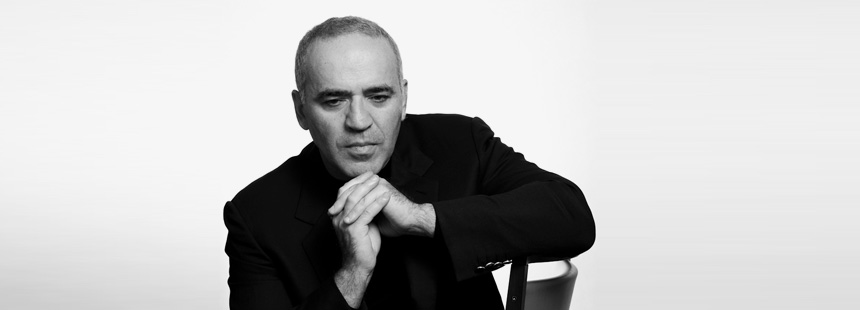

Congress’s Magnitsky Act sanctions Kremlin officials, but enforcement is up to the Obama State Department.
The Still-Clenched Fist in Moscow
By Garry Kasparov
January 28, 2013, 7:02 p.m. ET

This year is shaping up to be a worrying one for Russian President Vladimir Putin. After a long delay, the U.S. Congress finally passed the Magnitsky Act last month, committing to travel and banking sanctions against the Russian government officials who turn the wheels of Mr. Putin’s repressive machine. Taking aim at the apparatchiks this way can shake the entire Kremlin power structure.
It remains to be seen whether the State Department will vigorously enforce the law, having attempted to scuttle it before Congress passed it. But with proper enforcement, the law could undermine the standard mafia-boss promise that governs Mr. Putin’s ruling clique-”Stay loyal to me and I will protect you, no matter your crimes.”
A generation of Western leaders has accepted Mr. Putin and allowed him largely to back up this boast. Russian oligarchs shop for English soccer clubs and Manhattan penthouses while corrupt judges and vicious security officers enjoy their foreign holidays. Alexander Sidyakin, the member of parliament who co-wrote recent laws cracking down on protests and nongovernmental organizations, has vacationed on both coasts of the U.S. while publicly vilifying America.
The Kremlin responded to the Magnitsky Act by banning American adoption of Russian orphans (through a bill co-written by Mr. Sidyakin). This brutal policy can be understood only as a sneer from Mr. Putin to emphasize that he is capable of anything. The message of ruthlessness was meant not only for the West but for the millions of Russians who marched in protest of Mr. Putin’s rule last year.
Still, even subzero temperatures didn’t prevent tens of thousands of protesters from coming out in Moscow on Jan. 13 to condemn those who enacted the adoption ban. It is likely impossible to shame those who say it is better for an innocent child “to die in Russia than to live in America,” as one of the law’s proponents stated. But the protests showed that popular outrage against the Putin dictatorship hasn’t faded into the Russian winter.
Meanwhile, Mr. Putin is turning to propaganda games to perpetuate the impression that he can still count on Western support. The Kremlin-controlled mass media have recently been full of stories about impending high-level visitors from Washington looking to restore the U.S.-Russian “reset” and convey a letter from President Barack Obama himself. Foreign Minister Sergei Lavrov last week emphasized that Mr. Putin had personally invited Mr. Obama to come to Moscow.
As for the supposed Obama letter: One hopes Mr. Obama wouldn’t be so eager to come to Mr. Putin’s rescue. If the rumors are a Kremlin hoax, the U.S. should publicly shoot them down as quickly as possible. To allow them to spread would be a display of weakness-the kind that a bully like Mr. Putin is always eager to exploit. Back in 1961, the perceived weakness of young President John F. Kennedy at his Vienna summit with Soviet Premier Nikita Khrushchev led indirectly to the Cuban missile crisis. Only when Kennedy showed resolve did the Soviets later back down.
In his 1961 inaugural address, JFK spoke of a torch of human rights being passed to the next generation of Americans. He talked not of American triumph but of “the survival and success of liberty” around the world. Twenty years later, Ronald Reagan said that America would again be “the exemplar of freedom and a beacon of hope for those who do not now have freedom.”
President Obama also used this theme in his first inaugural address. “To those who cling to power through corruption and deceit and the silencing of dissent . . . we will extend a hand if you are willing to unclench your fist.” One can hardly imagine a better description of the Putin regime, yet Mr. Putin’s fist is more clenched today than ever. Twenty percent of the elected opposition leadership council, of which I am a member, is now under criminal investigation. (I was acquitted of spurious charges last August and have been threatened with others.)
In his second inaugural address last week, Mr. Obama again spoke to the responsibilities of the world’s most powerful nation. “We will support democracy from Asia to Africa, from the Americas to the Middle East, because our interests and our conscience compel us to act on behalf of those who long for freedom.” Fine words. Yet Mr. Obama must realize by now that he will be judged on his actions, not by his speeches.
Should the freshly re-elected American president return to negotiations with Mr. Putin while ignoring the dire state of human rights in Russia, he will be placing Kennedy’s torch of freedom up for sale.
Mr. Kasparov, a contributing editor of The Wall Street Journal, is the leader of the Russian pro-democracy group United Civil Front and chairman of the U.S.-based Human Rights Foundation.
Reproduced with permission from the Wall Street Journal.

